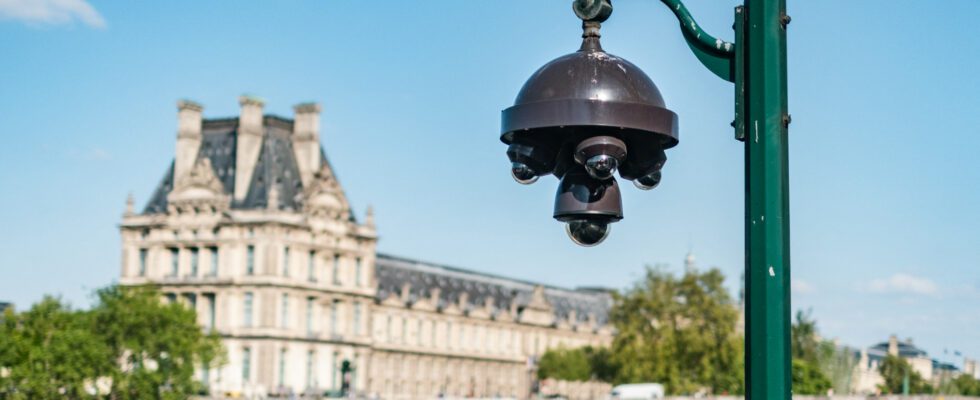The National Assembly on Thursday approved the use of so-called “intelligent” video surveillance, based on algorithms, which the executive wants to experiment with before and during the 2024 Olympics, despite fears of security abuses from the left. Article 7 of the Olympic bill was adopted with 59 votes in favor (presidential majority – LR – RN) against 14 against (Nupes). It provides on an experimental basis that the securing of “large-scale sporting, recreational or cultural events” can use algorithms.
The Rugby World Cup also concerned?
The Olympics are in the line of sight but the experiment, which must stop at the end of 2024, could start as soon as the law is promulgated, and concern for example the next Rugby World Cup in September-October. The stated goal: to analyze the images captured by cameras or drones, to automatically detect potentially risky actions or gestures.
The list of “events” to be detected must be fixed by decree, after consulting the National Commission for Computing and Liberties (Cnil). During the debates, the Minister of the Interior Gérald Darmanin cited as examples “a start of fire, population bottlenecks, an abandoned package or bag”. But “not the hoodies”, he assured, pressed with questions by the left.
The deputies of the Nupes are worried about the possible misuse of this technology, fearing that the Olympic Games will only serve as a springboard to generalize this type of surveillance to the population. The executive insists on the safeguards, the absence of facial recognition, and on the need to secure the Games and the millions of spectators expected. “The predetermined events concern not people but situations”, insisted Gérald Darmanin, without convincing them. The associations for the defense of freedoms are against, like the National Bar Council.
“Biometric” character of the data
The debates have revolved a lot around the “biometric” character or not of the data, for example to make it possible to isolate and follow a person. The majority and the government assure that they are not of this character. “It will necessarily be biometric data”, insisted Sandra Regol (ecologist).
The opposition deputies have tried to circumscribe the experiment more, to confine it to the abandonment of luggage, or to impose the fact that the State is solely responsible for the analysis of the data, without resorting to the private sector, but without hit.
An amendment by RN Aurélien Lopez-Liguori, president of the study group on digital security and sovereignty, was adopted. It intends to prioritize the use of European companies. But the fact that majority deputies, members of the study group, co-signed or sub-amended an RN amendment, outraged the left. “We are on a drift of this majority which no longer knows where it is going”, denounced the ecologist Jérémie Iordanoff.
